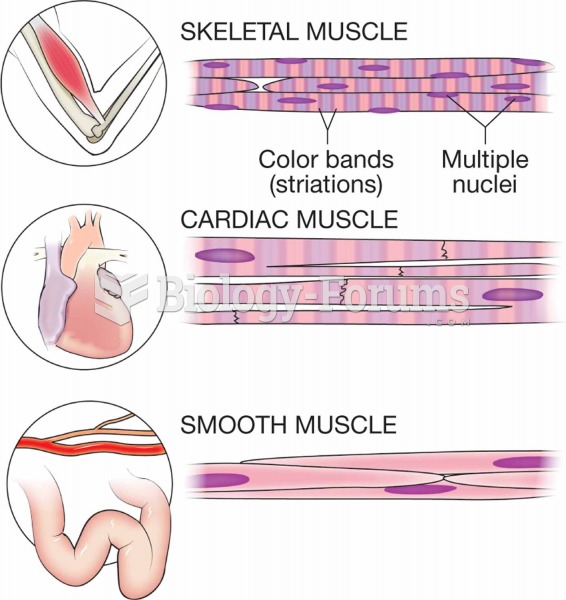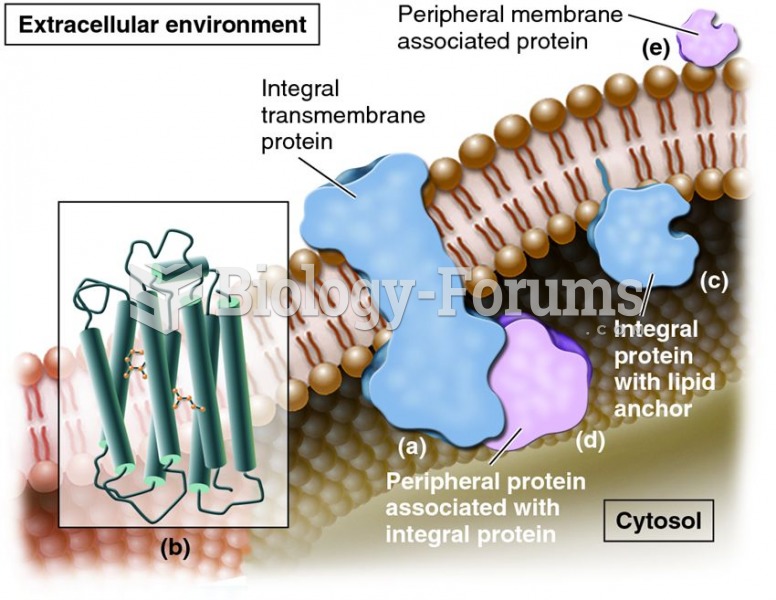|
|
|
Did you know?
IgA antibodies protect body surfaces exposed to outside foreign substances. IgG antibodies are found in all body fluids. IgM antibodies are the first type of antibody made in response to an infection. IgE antibody levels are often high in people with allergies. IgD antibodies are found in tissues lining the abdomen and chest.
Did you know?
The familiar sounds of your heart are made by the heart's valves as they open and close.
Did you know?
The average adult has about 21 square feet of skin.
Did you know?
There are 60,000 miles of blood vessels in every adult human.
Did you know?
In the United States, there is a birth every 8 seconds, according to the U.S. Census Bureau's Population Clock.







